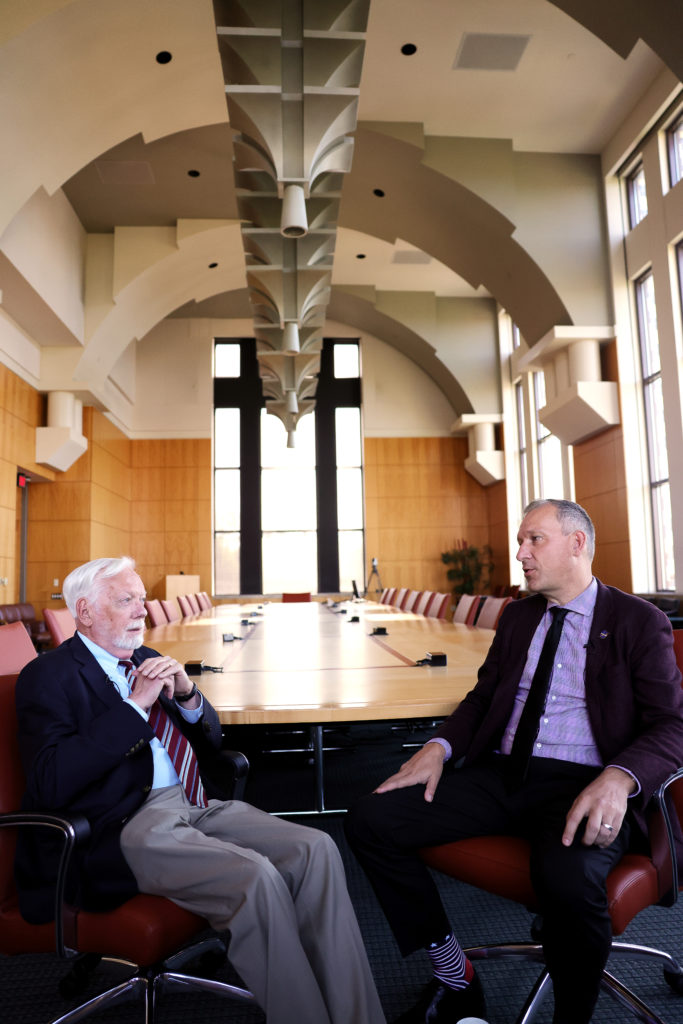U-M mentorship to NASA leadership
Two former Michigan Engineering professors, Lennard Fisk and Thomas Zurbuchen, discuss their career paths and the mentors who fostered them.
Two former Michigan Engineering professors, Lennard Fisk and Thomas Zurbuchen, discuss their career paths and the mentors who fostered them.
Current NASA Administrator and former U-M professor of climate and space sciences and engineering Thomas Zurbuchen came back to campus in the spring of 2022 to visit with his mentor Lennard Fisk, also a former NASA Administrator, as Fisk prepared to retire from Michigan Engineering. During their visit, we asked them a few questions about their career paths and the importance of mentorship.

Fisk: I’m what we call a Sputnik. I was 14 when Sputnik went up and as a result, that changed all of our career paths at that time because the space program was such a dominant thing. And so I’ve been involved in the space program ever since I went to graduate school.
Zurbuchen: I remember a little NASA book under the Christmas tree when I was 8 years old. It’s still in my office at NASA now. It’s actually not that great a book, but it was about Voyager and Apollo. I had missed Apollo because I was born in 1968, too young to have seen or appreciated the moon landing. But for me it was all about science.
Fisk: It was 1994, I had only been at U-M a year and was building my research group.
Zurbuchen: You were sitting there with Dr. Guice, who was a major scientist and a mentor of mine. The two of you were talking science, and I had never heard people talking about it the way you two did. I sat there and listened, probably for about half an hour, without saying a word. Then you turned to me and asked “What do you think about all this?” After one day, we \ went to lunch, and you said “You should consider coming to work for me.”
Zurbuchen: When I started, I was not educated that well in the area we were working on. I was well-read, having maybe spent more time in the library than I should. But I couldn’t turn it into science activity because the environment wasn’t set up to support me since I wasn’t up to speed. That’s when Len’s mentorship kicked in. In the evening hours, you would hold these classes \ just for me. So the first part of mentorship is support. It’s not advice, but support—adding value to the other person’s life.
Fisk: I’d like to think that’s part of my personality, yet it’s also self-serving. I wanted you to be successful because that made the group successful. I also wanted you to be independent. We all know faculty members who have to be the boss, and the people who work for them are supposed to just work for them. But I wanted people to be able to rise.
Zurbuchen: That really requires a mentor who is not insecure. If you’re worried that your mentees are going to be pushing you, that’s a real limitation. So in addition to support, it’s about equipping people, giving them the right tool set to achieve.